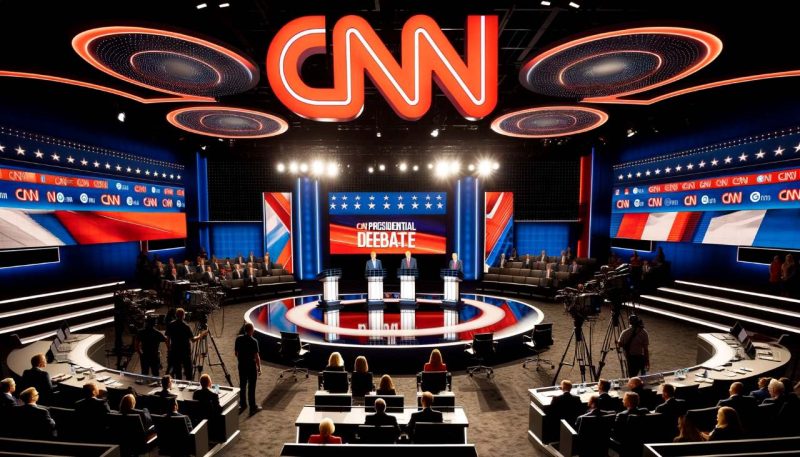First Debate: June 27, 2024 on CNN

In an increasingly polarized political landscape, it’s not often that we witness a moment of agreement between two fierce political rivals. However, in a surprising turn of events,
both President Joe Biden and former President Donald Trump have agreed to participate in two debates leading up to the 2024 Presidential Election. This development promises to bring a unique dynamic to the electoral process, highlighting the importance of direct dialogue in democracy.
The Significance of Debates in Modern Politics
A Platform for Policy Discussion
Debates have long been a staple of American presidential elections, offering candidates a platform to present their policies directly to the public. For voters, debates are an invaluable tool for assessing the competence, vision, and demeanor of the candidates. In an era where sound bites and social media posts often dominate political discourse, debates provide a rare opportunity for more in-depth discussion on pressing issues.
Historical Context
Historically, presidential debates have played pivotal roles in shaping election outcomes. The famous 1960 debate between John F. Kennedy and Richard Nixon is often cited as a turning point in the use of television as a powerful medium in politics. More recently, debates have served as critical moments where candidates can sway undecided voters or reinforce their supporters’ enthusiasm.
Why Two Debates?
Strategic Compromise by Team Biden
The agreement on two debates is seen as a strategic compromise, particularly driven by Team Biden. Traditionally, three presidential debates are the norm, but the decision to hold only two reflects a calculated move by the Biden campaign. By proposing this format, Biden’s team aims to minimize the risks associated an audience (which thesew debate will not have, and with an agreement to shut off the mics when the other candidate is speaking. This strategic move also ensures that each debate is more focused and impactful.
Debate Dates and Networks
The two debates are scheduled as follows:
- First Debate: June 27, 2024, hosted by CNN at their studios in Atlanta, Georgia. The moderators will be Jake Tapper and Dana Bash.
- Second Debate: September 10, 2024, hosted by ABC at their studios, with moderators to be announced.
These dates and networks were carefully selected to ensure maximum viewership and impact. Hosting the debates on major networks like CNN and ABC guarantees a broad audience, catering to different segments of the electorate.
Quality Over Quantity
By limiting the number of debates, both teams aim to ensure that each encounter is high-stakes and substantive. This approach can help focus the public’s attention and ensure that the debates are memorable and impactful events.
Key Issues Likely to Dominate the Debates
Economic Policy
With the economy recovering from the impacts of the COVID-19 pandemic, economic policy will undoubtedly be a major topic. Biden is likely to emphasize his administration’s achievements in job creation and economic stimulus, while Trump will probably criticize those measures as insufficient or misdirected, advocating for his own economic policies.
Healthcare Reform
Healthcare remains a crucial issue for many Americans. Biden may highlight the expansion of the Affordable Care Act and efforts to reduce prescription drug prices. In contrast, Trump could focus on criticizing these efforts and promoting his vision for healthcare reform.
Climate Change
Climate change and environmental policies are expected to be significant points of contention. Biden’s administration has taken significant steps towards green energy and reducing carbon emissions. Trump, on the other hand, may argue that these policies harm the economy and advocate for a more traditional energy approach.
Foreign Policy
Foreign policy will also be a crucial area of debate, with discussions likely to cover relations with China, the Middle East, and NATO. Biden’s approach to international alliances and Trump’s “America First” policies will provide a stark contrast for voters.
Potential Debate Styles and Strategies
Biden’s Approach
President Biden is expected to adopt a measured, policy-focused approach, emphasizing his administration’s achievements and vision for the future. His style may aim to appeal to moderate and undecided voters by presenting a calm and competent leadership image.
Trump’s Approach
Former President Trump is known for his combative and direct debating style. He is likely to use the debates as a platform to energize his base, criticize Biden’s record, and present himself as a strong, decisive leader.
The Role of the Moderators
Ensuring Fairness and Focus
The choice of moderators will be critical in ensuring that the debates are fair, focused, and substantive. Moderators will need to balance pressing candidates on their policies and allowing them to articulate their visions without descending into chaos or personal attacks.
Addressing Misinformation
One of the key challenges for moderators will be addressing misinformation. In past debates, fact-checking in real-time has been a contentious issue. Effective moderation will require a balance between challenging falsehoods and allowing candidates to present their cases.
The Public’s Role
Engaged Viewership
Public engagement will be crucial for the success of these debates. Voters should approach these debates with an open mind, focusing on the policies and visions presented rather than partisan preconceptions.
Impact on Voter Decisions
Debates can have a significant impact on voter decisions, especially among undecided voters. Engaged viewership can lead to a more informed electorate, better equipped to make decisions based on substantive issues rather than rhetoric.
Conclusion
The agreement between Team Biden and Team Trump to hold two debates marks a rare moment of bipartisan consensus in an otherwise deeply divided political climate. These debates promise to be pivotal events in the 2024 Presidential Election, offering voters a chance to hear directly from the candidates on the issues that matter most. As we approach these critical moments, the importance of informed and engaged viewership cannot be overstated. The future direction of the United States will, in many ways, be shaped by the outcomes of these debates and the choices voters make in their aftermath.
